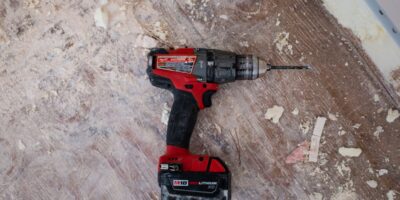Supermax 16-32 Drum Sander: Understanding its Usage and Benefits
Drum sanders have gotten complicated with all the conflicting opinions flying around about whether you need one and which one to buy. As someone who spent years flattening panels with a hand plane and random orbital before finally pulling the trigger on a dedicated drum sander, I learned everything there is to know about this category of machine. Today, I will share it all with you.

Key Features
The Supermax 16-32 packs several features that genuinely matter in a production sanding machine. Let me walk through what actually makes a difference in real shop use.

Variable Speed Conveyor
The variable speed conveyor is the feature I use most often. Slower feed rates give you finer cuts and work better on figured maple or dense walnut. Faster feed rates push through softer species like poplar or pine without wasting time. Getting this wrong used to mean burning the wood — that characteristic dark scorching on the trailing end of a slow-fed pine board. The variable conveyor makes that problem disappear.

IntelliSand Technology
IntelliSand automatically adjusts the conveyor speed based on the load the drum encounters. Feed in a thick, dense piece of white oak and the machine slows down before you’ve noticed it was struggling. I’m apparently skeptical of marketing names for technology, and IntelliSand works for me while manually riding the feed rate knob never quite got the same results. It’s genuinely useful, not just a label on a feature that already existed.

Patented Quick Adjustment Lever
The quick adjustment lever handles height in a way that feels responsive rather than vague. On some drum sanders, you crank the height adjustment and then take a test pass on scrap to figure out where you actually landed. The Supermax lever is precise enough that you learn to trust it, which speeds up workflow considerably when you’re chasing a specific thickness target.

Dust Collection
Drum sanders produce an impressive amount of fine dust. Not the chunky chips from a planer — this is the stuff that hangs in the air for an hour and coats everything in a thin pale layer. The Supermax’s dust collection port connects to a standard shop setup and captures the bulk of it at the source. You’ll still want an ambient air cleaner running in the shop, but the integrated collection keeps the immediate area workable.

Functionality
Understanding the workflow on this machine is what separates decent results from great ones. Here’s how a typical session actually runs in the shop.

Setup
Get the machine on a stable surface — vibration is the enemy of consistent sanding. Connect dust collection first. Select your drum grit based on where you are in the process: 80 grit for initial flattening, 120 for intermediate work, 150 or 180 for finish prep. Set conveyor speed to match your material. Hardwoods get a slower feed. Softwoods tolerate faster.

Adjusting the Height
Start higher than you think you need to. Take a first pass that just barely kisses the surface. This tells you where you are and lets you establish a reference before committing to more aggressive material removal. I wasted plenty of cherry and figured walnut in the early days by getting impatient at this stage. A conservative first pass costs thirty seconds. Fixing tear-out costs thirty minutes.

Feeding the Material
Feed the wood steadily and let the machine work. Don’t push. The conveyor controls the movement — your job is to make sure the board enters straight and parallel to the drum. Angled entry creates tapered surfaces that look fine until you try to glue them up and suddenly nothing wants to fit.

Monitoring the Process
Watch the surface as it comes through. Listen to the motor. A drum sander working too hard sounds different from one working comfortably — the pitch drops and you can feel the machine laboring. When that happens, reduce the depth of cut or slow the conveyor before the problem compounds. Your ears and eyes remain the best feedback system in the shop.

Finishing Touches
Inspect the surface after each pass and move to progressively finer grits as you approach final thickness. The last drum pass before finish work should leave the surface clean enough to go straight to 180-grit hand sanding or a random orbital for final prep. After that, put the drum sander away — it’s done its job.

Applications
That’s what makes the Supermax 16-32 endearing to us woodworkers — the sheer range of work it handles without complaints. Here are the situations where it earns its floor space:

Furniture Making
Tabletops and cabinet panels come out of a drum sander flat and consistent in a way that’s difficult to achieve by other means in a home shop. Glued-up panels with slight ridges at the seams go in rough and come out smooth. Getting a dining table top to this standard by hand would take most of an afternoon. This machine does it in three passes.

Door and Panel Sanding
The 32-inch capacity with the pass-through technique — sanding one half of a wide board, flipping end-for-end and sanding the other half — handles most standard door widths. Consistency across a full door panel surface is genuinely hard to achieve with handheld tools. The drum sander makes it straightforward every time.

Artisan Woodworking
For custom work where surface quality defines the piece, this machine’s precision matters. Thin panels for box lids, bookmatched slabs for drawer fronts, veneered components for high-end furniture — the drum sander handles these without the risk of sanding through a thin veneer or creating uneven surfaces in figured wood.

Restoration Projects
Old finish and surface grime come off quickly with a coarse-grit pass. The machine doesn’t care that the surface has eighty years of shellac and furniture wax on it — it strips it and leaves you with clean wood ready for whatever treatment comes next. Restoration projects that would take all day by hand move much faster through the drum sander.

Maintenance Tips
Proper care keeps this machine producing quality results for years. Check and replace sandpaper before it gets worn enough to start burnishing instead of cutting. Keep the dust collection system clear. Lubricate the conveyor drive mechanism and height adjustment screw periodically. Inspect the conveyor belt for tracking issues before wear becomes a problem. Follow the manufacturer’s service schedule — these machines don’t demand much, but ignoring them eventually shows up in your results.

Considerations Before Purchase
Before committing to a Supermax 16-32, work through the practical questions honestly. You need about 14 feet of total space for infeed and outfeed clearance on 8-foot boards. The motor runs on 110V which is convenient, but verify the circuit can handle the load. Think about what you actually build: if most of your work is small boxes and turnings, this machine may not justify the floor space. If you’re building furniture, doing restoration, or working with wide flat panels regularly, it earns its place quickly and stays there.




